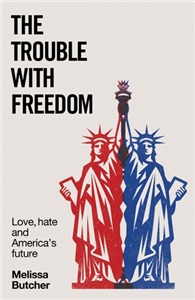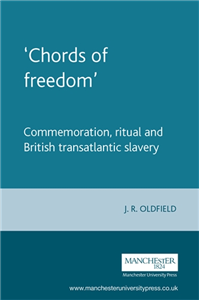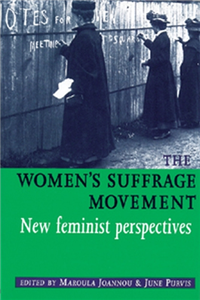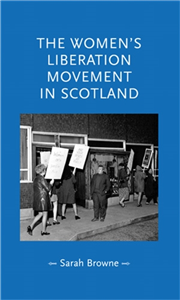Your Search Results
-
Get Fresh Books Publishing
Get Fresh Books Publishing is a non-profit, cooperative press devoted to amplifying diverse voices in poetry and making the publication process accessible to marginalized communities. Our primary objective is to provide opportunities for underrepresented voices by eliminating economic and societal barriers, such as submission fees and contests, which may inhibit marginalized voices from contributing to the literary conversation. As a cooperative press, we encourage manuscript submissions from BIPOC, LGBTQ+, people with disabilities and people living with mental illnesses. By doing so, we explicitly reject any “ism” or phobia which seeks to suppress the voices of those who receive insufficient or inadequate representation in literature. In the four short years of our founding, we have been able to preserve our commitment to diversity and inclusivity by publishing the work of 12 talented and distinct poets, whose poetry cover a wide range of topics from ethnicity, sexuality and religion to immigration, suicide and discrimination. Our press’s cooperative process of integrating the ideas and skills of our poets, editors and publisher have given us the ability to bring fresh and diverse voices into the literary world. With the help of donations, grants and private investments, we have been able to publish each literary work without charging a single submission fee to ensure that poets and writers of all ages, ethnicities, sexual orientations, abilities, and economic statuses would have their voices heard.
View Rights Portal
-
Promoted ContentBusiness, Economics & LawJune 2024
The labour movement in Lebanon
Power on hold
by Lea Bou Khater
The labour movement in Lebanon: Power on hold narrates the history of the Lebanese labour movement from the early twentieth century to today. Bou Khater demonstrates that trade unionism in the country has largely been a failure, for reasons including state interference, tactical co-optation, and the strategic use of sectarianism by an oligarchic elite, together with the structural weakness of a service-based laissez-faire economy. Drawing on a vast body of Arabic-language primary sources and difficult-to-access archives, the book's conclusions are significant not only for trade unionism, but also for new forms of workers' organisations and social movements in Lebanon and beyond. The Lebanese case study presented here holds significant implications for the wider Arab world and for comparative studies of labour. This authoritative history of the labour movement in Lebanon is vital reading for scholars of trade unionism, Lebanese politics, and political economy.
-
Promoted ContentHumanities & Social SciencesJanuary 2026
The trouble with freedom
Love, hate and America's future
by Melissa Butcher
An illuminating account of how Americans have been divided by the very value that unites them. America today is being torn apart by the struggle over a single concept, deeply rooted in the country's sense of self: freedom. Battered by wave after wave of crises, ordinary people of all political persuasions have come to feel that their freedom is under threat - and with it, nothing less than the soul of the nation. In The trouble with freedom, journalist and researcher Melissa Butcher takes a trip into the ferociously polarised world of American politics, hoping to find out what's going on beneath the surface. Criss-crossing the country, she talks to a wide range of people: Democrat and Republican, gay and straight, urban and rural, immigrants, First Nations, Black, white, the incarcerated. What she discovers is that political conflict is often the outcome of very personal experiences of managing cultural change. Exploring the different ways freedom has been used to define what it means to be American, Butcher encounters anger and distrust, but also untapped possibilities for empathy and care.
-
 Trusted Partner
Humanities & Social SciencesMarch 2007
Trusted Partner
Humanities & Social SciencesMarch 2007‘Chords of freedom’
Commemoration, ritual and British transatlantic slavery
by J. R. Oldfield
How should we as Britons remember transatlantic slavery? How has slavery been remembered in the past? 'Chords of freedom' sets out to answer these questions and, in doing so, traces the way in which British transatlantic slavery has been absorbed into the nation's collective memory. By combining two current historiographical preoccupations - the construction of public memory and British transatlantic slavery - this fascinating book focuses on the way in which the British traditionally have been taught to view transatlantic slavery through the moral triumph of abolition. The author traces the construction of this national history through a number of case studies, including visual images, literary memorials (the competing accounts of the anti-slavery movement produced by Thomas Clarkson and Robert and Samuel Wilberforce), monument-memorials, galleries and museums, and commemorative rituals from the nineteenth century to the present day. A separate chapter also considers how Britain's example in abolishing first the slave trade (1807) and then colonial slavery (1833-34) impacted on the rituals of the American anti-slavery movement, and served as a convenient symbol of the potential of freedom in the British West Indies. 'Chords of freedom' offers valuable new insights into the way in which a 'culture of abolition' took root in Britain, and how our views of transatlantic slavery and figures like William Wilberforce have been revised and amended to reflect the changing demands of a series of 'present days'. Its cross-disciplinary approach will appeal to a broad spectrum of specialists, as well as to undergraduates and postgraduates. ;
-
 Trusted Partner
Humanities & Social SciencesMay 2009
Trusted Partner
Humanities & Social SciencesMay 2009The Women's Suffrage movement
*New feminist perspectives*
by Maroula Joannou, June Purvis
Available in paperback for the first time, this important collection of essays illustrates the complexity, richness and diversity of the suffrage movement. Combining historical reappraisal with lively accounts of the culture of the women's suffrage movement, this volume offers a unique focus. It includes studies of the fascinating, but neglected groups that participated in the campaign: the Women's Franchise League; the Women's Freedom League; the Women's Tax Resistance League and the United Suffragists. This is accompanied by feminist research on the poetry, fiction and drama that emerged from women's struggle for the vote. In addition there are reappraisals of two leading figures in the Pankhursts' Women's Social and Political Union, an illuminating analysis of the relationship between suffrage and sexuality, and a discussion of what happened away from the metropolis, as well as of the little known campaign to extend the vote after 1918. ;
-
 Trusted Partner
Business, Economics & LawFebruary 2022
Trusted Partner
Business, Economics & LawFebruary 2022The labour movement in Lebanon
by Lea Bou Khater, Simon Mabon
-
 Trusted Partner
Humanities & Social SciencesFebruary 2022
Trusted Partner
Humanities & Social SciencesFebruary 2022Women art workers and the Arts and Crafts movement
by Zoë Thomas, Lynn Abrams
-
 Trusted Partner
Trusted Partner
-
 Trusted Partner
Trusted Partner
Does Movement Really Make Us Smart?
by Petra Jansen, Stefanie Richter
Media reports often praise movement as a cure-all. But apart from its undisputed positive effect on health, does movement really make us smarter? Consider a national football team, for example – are these excessively sports-driven players automatically the smartest people? Should we simply replace all school subjects with sports? The authors provide a detailed summary of the latest scientific findings on the influence of movement on cognitive ability. They describe the effects of movement, on old age, embodiment, emotion, school as well as other factors that influence cognition. Target Group: teachers, lecturers, psychologists, psychiatrists, neurologists, psychotherapists, movement therapists.
-
 Trusted Partner
Humanities & Social SciencesAugust 2014
Trusted Partner
Humanities & Social SciencesAugust 2014The women's liberation movement in Scotland
by Sarah Browne, Pamela Sharpe, Penny Summerfield, Lynn Abrams, Cordelia Beattie
This is the first book-length account of the women's liberation movement in Scotland, which, using documentary evidence and oral testimony, charts the origins and development of this important social movement of the post-1945 period. In doing so, it reveals the inventiveness and fearlessness of feminist activism, while also pointing towards the importance of considering the movement from the local and grassroots perspectives, presenting a more optimistic account of the enduring legacy of women's liberation. Not only does this book uncover the reach of the WLM but it also considers what case studies of women's liberation can tell us about the ways in which the development of the movement has been portrayed. Previous accounts have tended to equate the fragmentation of the movement with weakness and decline. This book challenges this conclusion, arguing that fragmentation led to a diffusion of feminist ideas into wider society. In the Scottish context, it led to a lively and flourishing feminist culture where activists highlighted important issues such as abortion and violence against women. ;
-
 Trusted Partner
Humanities & Social SciencesJanuary 2021
Trusted Partner
Humanities & Social SciencesJanuary 2021Women art workers and the Arts and Crafts movement
by Zoë Thomas
This book constitutes the first comprehensive history of the network of women who worked at the heart of the English Arts and Crafts movement from the 1870s to the 1930s. Challenging the long-standing assumption that the Arts and Crafts simply revolved around celebrated male designers like William Morris, it instead offers a new social and cultural account of the movement, which simultaneously reveals the breadth of the imprint of women art workers upon the making of modern society. Thomas provides unprecedented insight into how women navigated authoritative roles as 'art workers' by asserting expertise across a range of interconnected cultures: from the artistic to the professional, intellectual, entrepreneurial and domestic. Through examination of newly discovered institutional archives and private papers, Thomas elucidates the critical importance of the spaces around which women conceptualised alternative creative and professional lifestyles.
-
 Trusted Partner
Humanities & Social SciencesMay 2009
Trusted Partner
Humanities & Social SciencesMay 2009Consumerism and the Co-operative movement in modern British history
Taking stock
by Lawrence Black, Nicole Robertson
Despite the abundance and quality of recent historical writing on consumerism, it cannot be said that the modern Co-operative movement (Co-op) has been well served. It has also been by-passed in studies that locate Britons' identity in their consumption. The reasons for this can be found in the widely perceived decline of the Co-op since the 1950s, but also in various historiographical agendas that have resulted in its relative invisibility in modern British history. This book, by demonstrating the variety of broader issues that can be addressed through the Co-op and the vibrancy of new historical research into consumption, seeks to remedy this. Taking stock, both of the Co-op in a broader context and of new approaches to the history of consumption, combines the work of leading authorities on the Co-op with recent scholarly research. It explores the Co-op's distinctive interface between everyday issues and grander idealistic concerns. The chapters intersect to examine a broad range of themes, notably: the politics of consumerism including consumer protection, ethical and fair trading and alternatives to corporate commerce; design and advertising; the Co-op's relations with other components of the labour movement; and its ideology, image and memory. The collection looks at the Co-operative movement locally (through specific case studies), nationally and also in comparison to the European movement. This collection will appeal to academics, researchers, teachers and students of the economic, cultural and political history of twentieth-century Britain. It will also be of interest to academics and students of business studies, and co-operative members themselves. ;
-
 Trusted Partner
Humanities & Social SciencesOctober 2023
Trusted Partner
Humanities & Social SciencesOctober 2023Towards a just Europe
A theory of distributive justice for the European Union
by João Labareda
This highly original book constitutes one of the first attempts to examine the problem of distributive justice in the European Union in a systematic manner. João Labareda argues that the set of shared political institutions at EU level, including the European Parliament and the Court of Justice of the EU, generate democratic duties of redistribution among EU citizens. Furthermore, the economic structure of the EU, comprising a common market, a common currency and a free-movement area, triggers duties of reciprocity among member states. The responsibilities to fulfil these duties, Labareda argues, should be shared by the local, national and supranational levels of government. Not only should the EU act as a safety net to the national welfare systems, applying the principle of subsidiarity, but common market and Eurozone regulations should balance their efficiency targets with fair cooperation terms. The concrete policy proposals presented in this book include a threshold of basic goods for all EU citizens, an EU labour code, a minimum EU corporate tax rate and an EU fund for competitiveness. Labarada argues that his proposals match the political culture of the member states, are economically feasible, can be translated into functioning institutions and policies and are consistent with the limited degree of social solidarity in Europe. This book is a major contribution to the understanding of what a just Europe would look like and what it might take to get us there. This book is relevant to United Nations Sustainable Development Goal 10, Reduced inequalities
-
 Trusted Partner
Trusted Partner
-
 Trusted Partner
The ArtsJanuary 2019
Trusted Partner
The ArtsJanuary 2019European Film Noir
by Andrew Spicer
European Film Noir is the first book to bring together specialist discussions of film noir in specific European national cinemas. Written by leading scholars, this groundbreaking study provides an authoritative understanding of an important aspect of European cinema and of film noir itself, for too long considered as a solely American form. The Introduction reviews the problems of defining film noir, its key characteristics and discusses its significance to the development of European film, the relationship of specific national films noirs to each other, to American noir and to historical and social change. Eight chapters then discuss film noir in France, Germany, Britain and Spain, analysing both earlier developments and the evolution of neo-noir through to the present. A further chapter explores film noir in Italian cinema where its presence is not so well defined. Each piece provides a critical overview of the most significant films in relation to their industrial and social contexts. European Film Noir is an important contribution to the study of European cinema that will have a broad appeal to undergraduates, cinéastes, film teachers and researchers.
-
 Trusted Partner
The ArtsJune 2021
Trusted Partner
The ArtsJune 2021Medieval film
by Anke Bernau, Bettina Bildhauer
Medieval film explores theoretical questions about the ideological, artistic, emotional and financial investments inhering in cinematic renditions of the medieval period. What does it mean to create and watch a 'medieval film'? What is a medieval film and why are they successful? This is the first work that attempts to answer these questions, drawing, for instance, on film theory, postcolonial theory, cultural studies and the growing body of work on medievalism. Contributors investigate British, German, Italian, Australian, French, Swedish and American film, exploring topics such translation, temporality, film noir, framing and period film - and find the medieval lurking in inexpected corners. In addition it provides in-depth studies of individual films from different countries including The Birth of a Nation to Nosferatu, and Robin Hood: Prince of Thieves. Medieval Film will be of interest to medievalists working in disciplines including literature, history, to scholars working on film and in cultural studies. It will also be of interest to undergraduates, postgraduates and to an informed enthusiast in film or/and medieval culture.
-
 Trusted Partner
The ArtsJanuary 2019
Trusted Partner
The ArtsJanuary 2019Medieval film
by Anke Bernau, Bettina Bildhauer
Medieval film explores theoretical questions about the ideological, artistic, emotional and financial investments inhering in cinematic renditions of the medieval period. What does it mean to create and watch a 'medieval film'? What is a medieval film and why are they successful? This is the first work that attempts to answer these questions, drawing, for instance, on film theory, postcolonial theory, cultural studies and the growing body of work on medievalism. Contributors investigate British, German, Italian, Australian, French, Swedish and American film, exploring topics such translation, temporality, film noir, framing and period film - and find the medieval lurking in unexpected corners. In addition it provides in-depth studies of individual films from different countries including The Birth of a Nation to Nosferatu, and Robin Hood: Prince of Thieves. Medieval film will be of interest to medievalists working in disciplines including literature, history, art history, to scholars working on film and in cultural studies. It will also be of interest to undergraduates, postgraduates and to an informed enthusiast in film or/and medieval culture.
-
 Trusted Partner
The ArtsJanuary 2019
Trusted Partner
The ArtsJanuary 2019Realist film theory and cinema
The nineteenth-century Lukácsian and intuitionist realist traditions
by Ian Aitken
'Realist film theory and cinema' embraces studies of cinematic realism and 19th century tradition, the realist film theories of Lukács, Grierson, Bazin and Kracauer, and the relationship of realist film theory to the general field of film theory and philosophy. This is the first book to attempt a rigorous and systematic application of realist film theory to the analysis of particular films. The book suggests new ways forward for a new series of studies in cinematic realism, and for a new form of film theory based on realism. It stresses the importance of the question of realism both in film studies and in contemporary life. Aitken's work will be of interest to scholars and advanced students of film studies, literary studies, media studies, cultural studies and philosophy.
-
 Trusted Partner
The ArtsJune 2021
Trusted Partner
The ArtsJune 2021Lukácsian film theory and cinema
A study of Georg Lukács' writing on film 1913–1971
by Ian Aitken
Lukácsian film theory and cinema explores Georg Lukács' writings on film. The Hungarian Marxist critic Georg Lukács is primarily known as a literary theorist, but he also wrote extensively on the cinema. These writings have remained little known in the English-speaking world because the great majority of them have never actually been translated into English - until now. Aitken has gathered together the most important essays and the translations appear here, often for the first time. This book thus makes a decisive contribution to understandings of Lukács within the field of film studies, and, in doing so, also challenges many existing preconceptions concerning his theoretical position. For example, whilst Lukács' literary theory is well known for its repudiation of naturalism, in his writings on film Lukács appears to advance a theory and practice of film that can best be described as naturalist. Lukácsian film theory and cinema is divided into two parts. In part one, Lukács' writings on film are explored, and placed within relevant historical and intellectual contexts, whilst part two consists of the essays themselves. This book will be of considerable interest to scholars and students working within the fields of film studies, literary studies, intellectual history, media and cultural studies. It is also intended to be the final volume in a trilogy of works on cinematic realism, which includes the author's earlier European film theory and cinema (2001), and Realist film theory and cinema (2006).
-
 Trusted Partner
Humanities & Social SciencesNovember 2022
Trusted Partner
Humanities & Social SciencesNovember 2022Freedom of speech, 1500–1850
by Robert Ingram, Jason Peacey, Alex W. Barber, Alastair Bellany, Peter Lake
-
 Trusted Partner
Humanities & Social SciencesOctober 2024
Trusted Partner
Humanities & Social SciencesOctober 2024Brexit and citizens’ rights
History, policy and experience
by Djordje Sredanovic, Bridget Byrne
The book offers interdisciplinary analyses of the impact of Brexit on the rights of EU27 citizens in the UK, Britons in the UK and the EU, and third-country nationals. It combines a historical examination of citizenship and migration between the UK, Europe and the Commonwealth with the analysis of policies and of the experiences of the different groups impacted by Brexit. The book discusses Brexit within the larger history and dynamics of UK and EU citizenship and migration. The individual chapters look at how Brexit is transforming the citizenship rights of different groups, including issues of loss of citizenship and experiences of naturalisation. They further examine the fears of the groups impacted, and larger issues of belonging, marginalisation, political orientations and mobilisations that cross legal status, nationality, ethnicity, race and class.

























